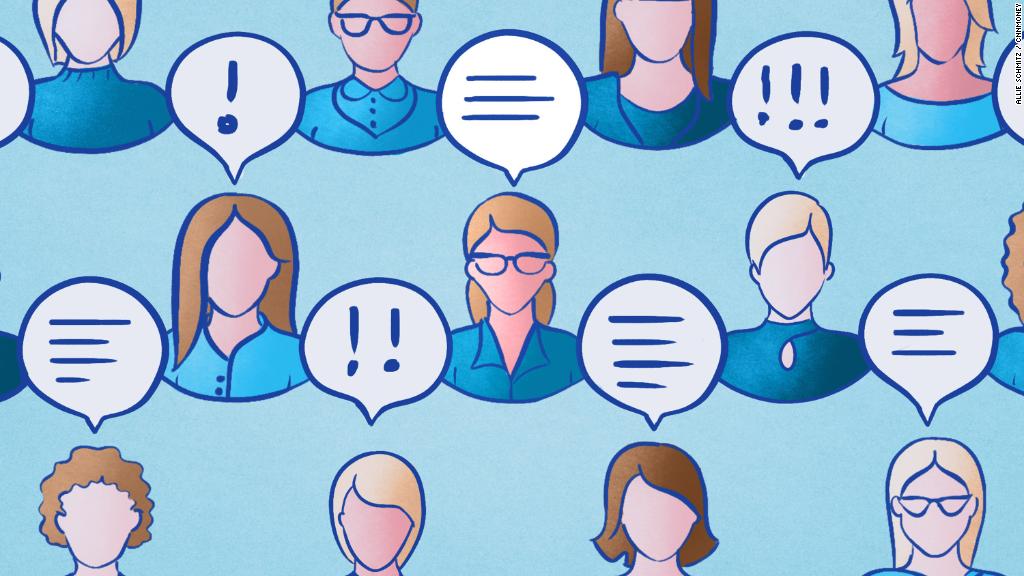
As sexual assault allegations rock workplaces across the country, there's been a growing call to bring men into the gender equality conversation.
One way to do that, according to an expert on the study of masculinity, is to ramp up the teaching of what it means to be a man today.
Beginning in 2019, Stony Brook University, part of the State University of New York system, will become the first school to offer a master's degree in masculinity studies, said Michael Kimmel, the program's creator and founder of the university's Center for the Study of Men and Masculinities.
Kimmel and other professors around the country currently teach courses on men's studies and masculinity, but he says there is no dedicated program on any campus where a student could major in and receive a degree in masculinity studies at the undergraduate or graduate level.
"I think we've become increasingly aware of the centrality of gender in people's lives," said Kimmel, who has written several books on masculinity, including "Guyland: The Perilous World Where Boys Become Men."
"We're trying to make that gender conversation more visible for men."
Kimmel says the program, which will be offered exclusively online, will explore the research on the impact of media representations on men.
As an example, he points to the transformation of the action figure G.I. Joe, which has gotten significantly more muscular through the years.
"The effect on a young boy of seeing these kinds of unbelievably, sort of hyper pumped up guys is, 'I feel small. I feel inadequate. I have to get bigger. I am not big enough,' " Kimmel said.
"We have a lot of good research on the effect of these kind of media images on girls' development ... so now we have to have that parallel conversation about boys because we basically ignored them," he said.
The coursework will also address the social and behavioral research on boys' and men's development, exploring the effects of family arrangements, fatherhood and work-life balance.
Related: Why most sexual harassment training videos don't work
Kimmel expects the master's program will likely attract teachers and psychologists as well as activists who are already working on projects to engage men around gender equality.
He believes bringing together activists and academics can bolster gender equality efforts.
"It gives the academics a sense of grounding in a much larger political movement. Now that, of course, is directly addressing the gender gap," Kimmel said. "That's the idea of it, is to see how people are addressing these kinds of issues around the world, what kind of projects they're developing and see how our research can help them."
Jack Harris, chair of the department of men's studies at Hobart and William Smith Colleges, the first school in the country to offer a minor in men's studies, according to Harris, says the academic work can help change negative behavior by men toward women.
"We have to educate men so that when they take leadership positions and when they take roles in organizations, that they recognize that this behavior is simply neither professional nor acceptable and there is no excuse for it," he said.
Harris and Kimmel say in their courses on men's studies and masculinity, the classes have been evenly split between male and female students. Nationwide, Kimmel says his colleagues who teach similar courses report anywhere from 20% to 45% of men in their classes.
Related: It's getting even harder to be a woman
To the critics who question the need for a master's degree in masculinity when men have held much of the power in society, Kimmel said there are benefits to studying groups wielding so much influence.
"I regard masculinity studies as part of what you might call superordinate studies, not subordinate studies, like white studies or heterosexuality studies or masculinity studies. What's it like to be the dominant group?" he said.
Why do we as a society benefit from learning what it's like to be the dominant body? "Privilege is invisible to those who have it," Kimmel said. Most white men don't believe they have any power at all, he added. "Their wife bosses them around, their kids boss them around, their boss bosses them around, so this idea they have all the power, well, not the way they see it."
If men are not brought into the conversation as "allies and stakeholders," Kimmel believes they will try "at every turn" to undermine efforts to bring about change. "Name one reform that women wanted, ever, that didn't require men's support ... We cannot fully empower women and girls unless we engage boys and men."
